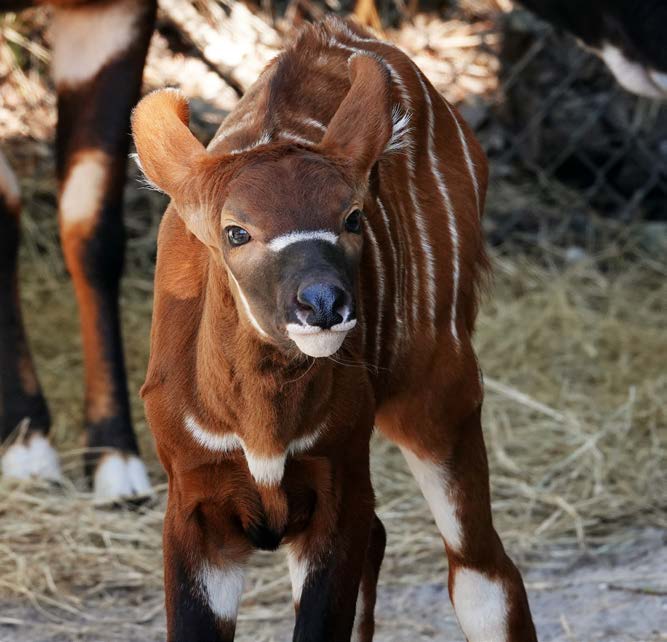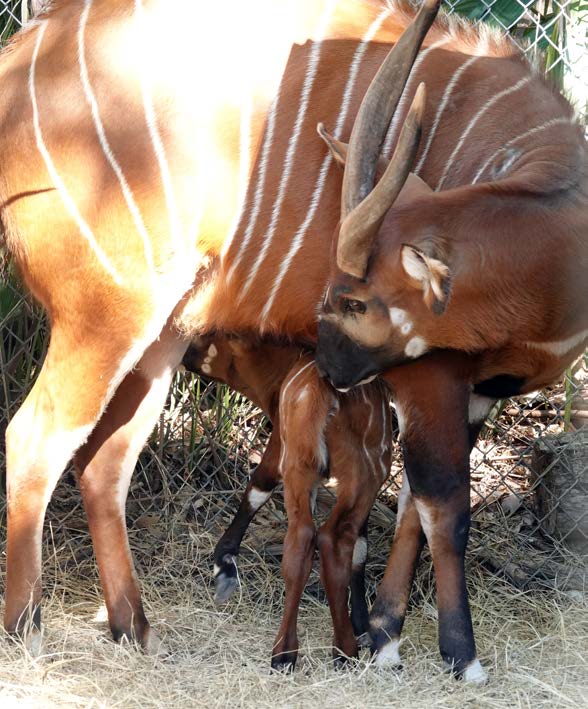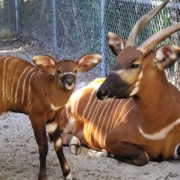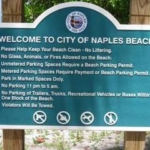Introducing: Amali to Naples Zoo
 Naples Zoo is celebrating the first Zoo baby of 2021 – a critically endangered Eastern bongo calf.
Naples Zoo is celebrating the first Zoo baby of 2021 – a critically endangered Eastern bongo calf.
Five-year-old bongo, Amara, gave birth to a female calf at approximately 6:00 pm Sunday, January 17th. The calf weighed 46 pounds and stood approximately 2 feet tall. Her name is Amali, which means “hope” in Swahili.
The calf received a neonatal exam from the Zoo’s licensed veterinary technician and was found to be healthy and thriving. The full examination included taking the calf ’s temperature, heartrate, respiratory rate, an eye exam, listening to the heart and lung sounds, checking the suckle response and an examination for a cleft palate. The examination also revealed that the calf is female.
This is Amara’s third calf – but it is the first female. Amara’s first male calf, Bakari, was born in January 2019 and her second calf, Makumi, was born in December of 2019.
The calf has since been introduced to her brothers and the exhibit for public viewing. Be sure to look for her on your next visit!
The mother and father of the new baby bongo were specifically matched by the Species Survival Plan® (SSP) based on their ancestry, to create the greatest genetic diversity in the population over the next century.
 The bongos arrived in April of 2018 from two different accredited zoos in Texas to contribute to the future of their species. Naples Zoo is pleased to be a part of this critical program to sustain the Eastern bongo population in Zoos.
The bongos arrived in April of 2018 from two different accredited zoos in Texas to contribute to the future of their species. Naples Zoo is pleased to be a part of this critical program to sustain the Eastern bongo population in Zoos.
Bongos are the largest of the forest antelope. These colorful creatures can weigh between 525 and 880 lbs. In addition to loss of their forest homes, they were hunted out over a century ago in Uganda and only 70 to 80 of these beautiful antelope remain in the wild in Kenya.
But while wild populations were declining, accredited zoos had been carefully breeding mountain bongos. And in 2004, accredited zoos returned 18 bongos to the Mt. Kenya Wildlife Conservancy in Africa. Today, over 70 bongos now live on the Conservancy providing hopes for mountain bongo recovery through conservation translocations.




Leave a Reply
Want to join the discussion?Feel free to contribute!